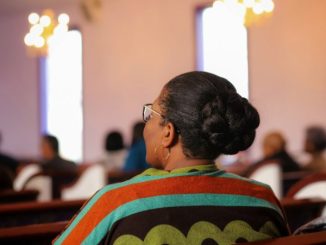
Sen. Mike Lee, R-Utah, introduced legislation last week that would clarify the legal definition of “obscenity” at the federal level in response to rampant internet pornography.
The Interstate Obscenity Definition Act (IODA) would also open the door for the prosecution of pornography by prohibiting the transmission of obscene content across state lines.
“Obscenity isn’t protected by the First Amendment, but hazy and unenforceable legal definitions have allowed extreme pornography to saturate American society and reach countless children,” Lee said in a statement. “Our bill updates the legal definition of obscenity for the internet age so this content can be taken down and its peddlers prosecuted.”
According to the text of the bill, the definition of “obscenity” in the Communications Act of 1934 would be amended to include material that “taken as a whole, appeals to the prurient interest in nudity, sex, or excretion,” as well as anything that “depicts, describes or represents actual or simulated sexual acts with the objective intent to arouse, titillate, or gratify the sexual desires of a person, and, taken as a whole, lacks serious literary, artistic, political, or scientific value.”
The bill would also remove the “intent” requirement that only outlaws the transmission of obscenity for the purposes of abusing, threatening or harassing a person.
In a news release, Lee’s office noted that the legal definition of obscenity emerged from the three-pronged “Miller test” from the 1973 U.S. Supreme Court decision in Miller v. California, which Lee argues is inadequate in the internet era.
“Its standards are subjective and vague, making it difficult to apply with certainty to any given material,” the release said. “Using a pre-internet standard for modern times presents serious challenges — particularly when states use differing definitions for ‘obscenity’ — and allows criminals to evade prosecution.”
Lee has attempted to introduce the IODA twice before, first in 2022 and again in 2024, but the bill died in the Democrat-controlled Senate after failing to garner any co-sponsors.
A companion to the current bill is being sponsored in the U.S. House of Representatives by Rep. Mary Miller, R-Ill., who said the law “equips law enforcement with the tools they need to target and remove obscene material from the internet, which is alarmingly destructive and far outside the bounds of protected free speech under the Constitution.”
In February, Lee introduced the SCREEN Act, which would require all commercial pornographic websites to adopt age verification technology to ensure a child cannot access its pornographic content.
A one-pager on the SCREEN Act noted statistics showing that the average age of exposure to pornography is 11 years old, and that blocking and filtering software have proven ineffective at preventing the nearly 80% of young people from 12 to 17 who were exposed to it.
Jon Brown is a reporter for The Christian Post. Send news tips to jon.brown@christianpost.com





Be the first to comment